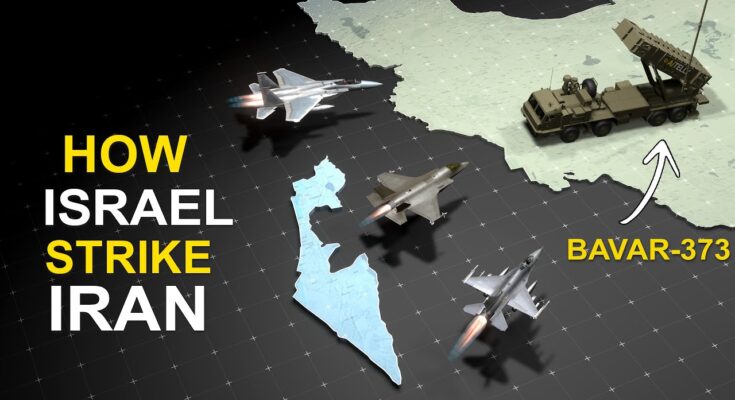Israel has been known for taking strategic and bold military actions when it comes to dealing with threats from its neighboring countries, including Iran. In recent years, there have been reports of Israel conducting airstrikes on Iran’s military targets. But how does Israel actually strike Iran’s military targets? Let’s delve into the details of this complex military operation.
1. Intelligence Gathering
Before Israel can strike Iran’s military targets, a crucial step is gathering intelligence. Israel’s intelligence agency, Mossad, plays a key role in this process. Mossad collects information on Iran’s military installations, movements, and activities, using various sources such as satellite imagery, human intelligence, and signal intelligence.
2. Planning and Coordination
Once sufficient intelligence is gathered, Israel’s military strategists plan the operation. This involves determining the target, the timing of the strike, the weapons to be used, and the mode of attack. Coordination with other military units, such as the Israeli Air Force, is essential to ensure a successful operation.
3. Use of Advanced Technology
Israel is known for its use of advanced technology in military operations. When striking Iran’s military targets, Israel may use stealth aircraft, such as the F-35 fighter jet, to avoid detection and interception. Precision-guided munitions and electronic warfare capabilities are also used to ensure accuracy and effectiveness.
4. Air Strikes
One of the primary methods used by Israel to strike Iran’s military targets is through air strikes. Israeli fighter jets penetrate Iranian airspace, delivering airstrikes on key installations, such as missile sites, nuclear facilities, and command centers. The element of surprise and speed are crucial in air strikes to minimize the risk of detection and retaliation.
5. Cyber Attacks
In addition to conventional air strikes, Israel may also launch cyber attacks on Iran’s military infrastructure. These cyber attacks target Iran’s communication networks, command and control systems, and weapon systems, disrupting their ability to function effectively. Cyber warfare has become an increasingly important component of modern military operations.
6. Covert Operations
Israel is known for its expertise in conducting covert operations to strike Iran’s military targets. Special forces units may be deployed behind enemy lines to gather intelligence, sabotage installations, or assassinate key personnel. Covert operations allow Israel to maintain deniability and avoid direct confrontation with Iran.
7. International Relations
Before striking Iran’s military targets, Israel must consider the potential consequences of its actions on the international stage. Israel’s relationship with other countries, such as the United States, Russia, and European nations, plays a crucial role in determining the diplomatic fallout of the operation. Israel must also consider the risk of escalation and retaliation from Iran.
In conclusion, Israel’s ability to strike Iran’s military targets is a result of careful planning, advanced technology, and strategic coordination. By utilizing intelligence gathering, advanced technology, air strikes, cyber attacks, covert operations, and diplomatic considerations, Israel is able to conduct precise and effective military operations against Iran’s military targets.



